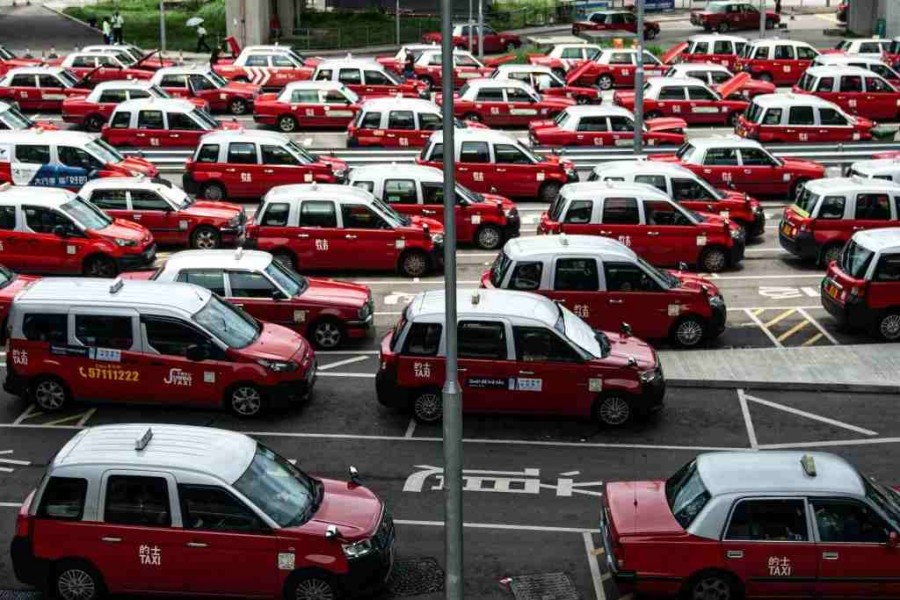Hong Kong Loves to Hate Its Cabbies - Can Polite Ambassadors Help?
13 August, 2024

Business owner Louis Ho remembers how so many of Hong Kong's taxi drivers refused to take him and his mother – who was a wheelchair user – to hospital for routine check-ups. “I didn’t even need the driver to carry my mum or the wheelchair. I did everything myself,” says the 64-year-old whose mother passed away in 2018.
Hong Kong's taxi drivers face criticism for rudeness and poor service. The Taxi Council is introducing “courtesy ambassadors” to improve the image. However, many remain skeptical due to past negative experiences and ongoing issues, including high costs and competition from Uber.
He is one of many Hong Kongers who have a story to tell about their city's infamous cabbies. Ask them what they like least about Hong Kong, and taxi drivers will likely be high on the list. The most common complaints are that drivers are rude, refuse to accept rides, and often take longer routes so customers have to pay more.
But now the Hong Kong Taxi Council is on a mission to transform this image. They will dispatch “courtesy ambassadors” armed with "best-practice" pamphlets to taxi stands. Will that really help? That depends on who you ask. A single campaign cannot school rude or misbehaving drivers overnight – there are about 46,000 cabbies in the city, cautions Ryan Wong, the chairman of the council. But he is hopeful: "This is not the first time that we have done this, and the feedback from drivers has been positive."
Hong Kongers are more sceptical. An interview clip of a taxi driver saying that passengers, rather than drivers, are the ones to be educated has gone viral in the city – many point to it as evidence that nothing will change. Many of them are also still smarting from past experiences.
Amy Ho, in her 30s, said she stopped taking taxis a few years ago after an encounter that she found particularly unpleasant. “I didn’t realise I had asked for a very short journey. As soon as I reached the destination, I scrambled for cash to pay," she says. "It was merely five seconds or so, and the driver said, ‘Can you stop dragging on, auntie? I can’t believe you need a ride for such a short distance and you can’t even afford it!'”
IT worker Kenny Tong now only takes a cab about three times a month, preferring to avoid the ordeal where he can. To hail one, he says, he often has to “bow, wait for the driver to lower the car window” and check if his destination is on the driver's route for the day. “Some taxi drivers grumble throughout the journey after I have boarded,” he adds. He also finds it frustrating when drivers do not use GPS and ask him how to reach the destination – even though they have “multiple phones on the dashboard.”
Most disgruntled passengers do not file complaints because it's time-consuming. Still, there were about 11,500 complaints last year – an 11% increase from 2019, according to the Transport Advisory Committee. Only a tiny fraction were prosecuted.
Then there is the problem of dishonest drivers – with tourists especially vulnerable. In early July, a visitor from China's eastern province of Zhejiang took to social media to complain that she was only given HK$44 ($5.6; £4.5) in change after giving a cabbie HK$1,000 for a HK$56 ride. She reported the incident to the police but couldn’t get her money back because of insufficient evidence.
But poor behaviour is only a symptom of the deeper issues that beset the city’s taxi industry, which is struggling with high costs, increased competition, and bureaucracy. There are about 18,000 taxi licenses in the city, and this number has been largely capped since 1994, apart from 2016 when just 25 licenses were issued. Many holders see the licenses as an investment and rent them to drivers.
Leung Tat Chong – who has worked as a taxi driver for more than two decades – says the rent of the licenses has kept rising, and a driver has to pay about HK$500 for a 12-hour daytime shift – which does not include fuel. On a typical day, a driver can make HK$500 to HK$800. “We can only do more business during rush hours, and sometimes we wait for up to 25 minutes and there is not even one single passenger,” he says. “To make a living, some drivers are not as patient and they have no capacity to improve their services.” This is not an excuse for poor behaviour, he adds, but the “reality” of the industry.
Taxis also face intense competition from Uber, which has been hugely popular since its entry into the Hong Kong market in 2014. The company says half of the city’s 7.5 million population have used it at least once. The taxi industry has called on the government to crack down on the platform, which remains officially illegal in the city, arguing that it is unfair because Uber drivers are not subjected to the same laws – including needing special licences to operate.
Source: www.bbc.com
TAG(s):
